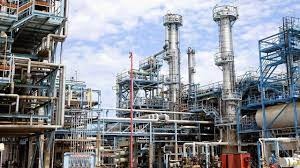In a significant development for Nigeria’s energy sector, the Port Harcourt Refining Company (PHRC) commenced operations on Wednesday, marking the conclusion of an era characterized by heavy reliance on imported fuel. The refinery, with a combined capacity of 210,000 barrels per day, resumed operations following months of intensive rehabilitation led by the Nigerian National Petroleum Corporation Limited (NNPCL).
Stakeholders in the downstream sector anticipate a positive impact on the price of fuel, currently standing at over N617 per litre, with the resumption of the refinery’s operations.
In August, the Minister of State for Petroleum (Oil), Senator Heineken Lokpobiri, had assured Nigerians that the refinery would become operational by December, emphasizing the goal of reducing the country’s dependence on fuel imports.
Corroborating Lokpobiri’s statement, the NNPCL outlined its commitment to ceasing the importation of petroleum products into the country by December 2024. Mele Kyari, the Group Chief Executive Officer of NNPCL, provided a timeline for refinery operations, stating, “I can confirm to you that by the end of December this year, we will start the Port Harcourt refinery; early in the first quarter of 2024, we will start the Warri refinery, and by the end of 2024, Kaduna refinery will come into operation.”
The Federal Executive Council had previously approved $1.5 billion in March 2021 for the rehabilitation of the Port Harcourt Refinery. It has been reported that N11.35 trillion ($25 billion) has been expended over the past ten years in efforts to repair the country’s three refineries. The resumption of operations at the Port Harcourt Refining Company is seen as a crucial step towards achieving self-sufficiency in fuel production and reducing reliance on costly imports.










